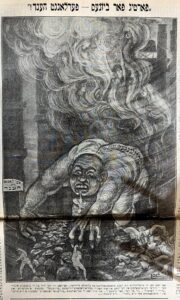Once a Chinese state enterprise, the Qinghe Special Steel Corporation had been transferred to the private sector before its plant in Tielng became the scene of a terrible accident in April 2007 – the worst to befall the modern Chinese steel industry. A large overhead ladle, that carried molten steel from a blast furnace, separated from its overhead track and fell. Instead of remaining upright, it hit a flatbed truck and tilted, spilling its deadly contents.
Some 25 tons of liquid steel at a temperature of 1,500°C (2,730°F) flowed out of the 2 m (6 ft) ladle, burst through the door of a meeting room where workers had assembled during an early-morning shift change and killed over 30 occupants. By some miracle, six workers who were out on the factory floor survived – they were able to turn and run, though all were badly burned and required prolonged hospitalization. Rescue services couldn’t gain access to the area until the intense heat cooled. The bodies they eventually recovered were too badly burned to be recognized and had to be identified through DNA testing.
There was public outrage when news of the tragedy broke. The authorities immediately sealed off the plant and launched a full investigation. The findings were not reassuring. It seemed that safety measures were poor, management was ineffective and the hoist that fell was not suitable for the job it was being asked to do. More significantly, the report concluded that this was not an isolated case of inefficiency, but indicative of a malaise that had spread throughout the Chinese steel industry. In a situation where steel making had to expand rapidly – perhaps too rapidly – to support the rapacious demands of a booming national economy, comers were being cut and a lax safety culture had become endemic.
When: April 18 2007
Where: Tieling, Liaoning Province, China
Death toll: 32 died
You should know: In the immediate aftermath of the Qinghe Special Steel Corporation disaster, the plant’s owner and three senior employees were arrested and charged with safety violations, while officials quickly offered generous compensation to bereaved families to ensure that public anger did not get out of hand.






















